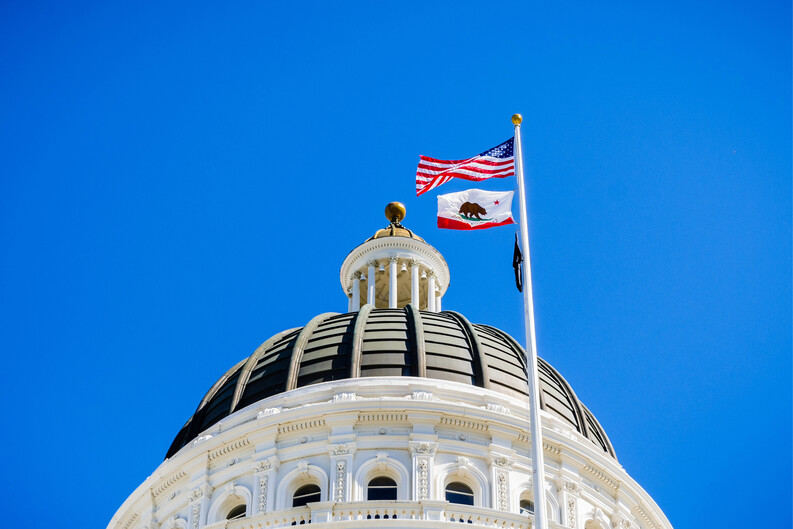Delbert Tran ’18: Protecting and Defending Civil Rights in California

As a Deputy Attorney General for the State of California, Delbert Tran ’18 is leading efforts to protect and defend civil rights in the state. He credits the Media Freedom and Information Access Clinic (MFIA) with giving him the opportunity to realize his dreams to become a civil rights lawyer.
Tran knew since middle school that he wanted to be a lawyer. One afternoon waiting for his parents to finish work, he remembers picking up one of his brothers’ books, a play based on the “Scopes monkey trial” titled Inherit the Wind. The play dramatized a civil rights attorney’s defense of a science teacher who was being criminally prosecuted and demonized by everyone in his town for teaching evolution.
“I thought of how important it was to be the person who stands by someone when no one else would, to stand for truth, and to stand for what's right,” Tran remembers. “That planted the seed of the idea that drove me all the way to where I am now.”

Growing up in San Jose, California, Tran moved across the country for college. He received his B.A. in English and Government at Georgetown University in Washington, D.C. In 2015, he enrolled at Yale Law School to fulfill his dream of becoming a lawyer. At Yale, the MFIA Clinic became a home for Tran at the law school. In his third year, Tran was one of the clinic’s student directors.
Tran recalls a series of cases he worked on at MFIA as formative in his legal education. Many of them concerned botched death penalty procedures, which raised serious constitutional questions. In Guardian v. Ryan, the clinic used the First Amendment to argue for a constitutional right of access to information about Arizona’s execution process. The clinic obtained an order recognizing the public’s constitutional right to view the injection of lethal drugs, requiring the state to install a camera in the chemical room. In another case, Hamm v. Dunn, the clinic argued for a right of access to fight against secrecy proceedings that the state of Alabama had instituted to shroud its executions from the public eye.
These cases felt particularly impactful, Tran recalls, because they helped him connect how access to information is foundational to the realization of civil rights and the public interest.
“Ingrained in our Constitution and system of laws is an ability to know,” Tran said. “And knowing enables us to educate ourselves about what we are doing to the most marginalized in our society, how we are conducting our vision of justice and how to secure democracy more generally.”
More practically, Tran says he learned at MFIA to think about the law strategically and use it in impact litigation to effect broader changes. And he credits MFIA with equipping him with the legal tools he uses in his day-to-day practice.
“I felt like MFIA gave me a head start in diving straight into what I do today,” Train said. “Working at the clinic was one of the best parts of going to law school at Yale.”
After graduating, Tran worked as an Associate at Covington & Burling LLP in San Francisco. He clerked for Judge Marilyn Huff in the U.S. District Court for the Southern District of California, and Roger Gregory, who was then the Chief Judge of the U.S. Court of Appeals for the Fourth Circuit.
Since 2021, Tran has served in the state of California’s Department of Justice. As Deputy Attorney General, Tran’s docket is spread across litigation, investigations, and policy. While he has worked on a wide variety of subjects, his cases have focused on constitutional rights and equal protection of race and gender.
I felt like MFIA gave me a head start in diving straight into what I do today. Working at the clinic was one of the best parts of going to law school at Yale.”
—Delbert Tran ’18
Tran is one of the lead attorneys defending against several lawsuits challenging California’s corporate diversity laws, which require women, racial minorities and LGBTQ+ people to be included on the boards of California’s publicly held corporations. In one of these suits, he helped secure a federal court’s denial of a preliminary injunction due to the court’s finding that the law requiring corporate boards to include women was necessary to remedy longstanding gender discrimination in corporate board selection. Tran is also leading the state’s lawsuit challenging a discriminatory school district policy that forces school personnel to out trans youth to their parents, even when outing the student would cause physical, mental, or psychological harm. He and his team obtained a temporary restraining order and preliminary injunction against the policy this fall.
On the policy front, Tran recently co-authored The California Reparations Report, which comprehensively documents slavery’s longstanding and ongoing effects around the country and in California. The report recommends numerous remedies for descendants of people who were enslaved, from compensation to wide-ranging policy changes that will help redress harms of slavery that have accumulated over time.
Spreading information and truth-telling are key components of this work, according to Tran.
“Knowing and spreading the truth is essential to the changes you want to pursue, whether it’s legislative or through litigation,” Tran said. “In this approach, I like to think I am carrying the MFIA mantle forward.”
The Media Freedom and Information Access Clinic (MFIA) is a law student clinic dedicated to increasing government transparency, defending the essential work of news gatherers, and protecting freedom of expression by providing pro bono legal services, pursuing impact litigation and developing policy initiatives.


